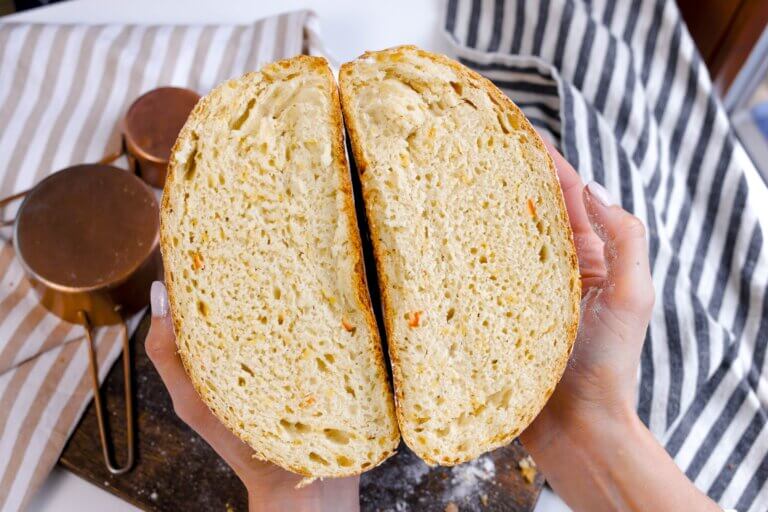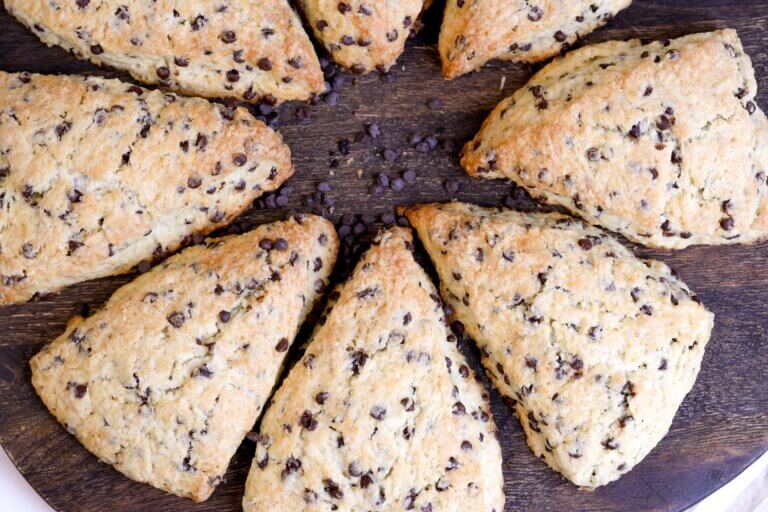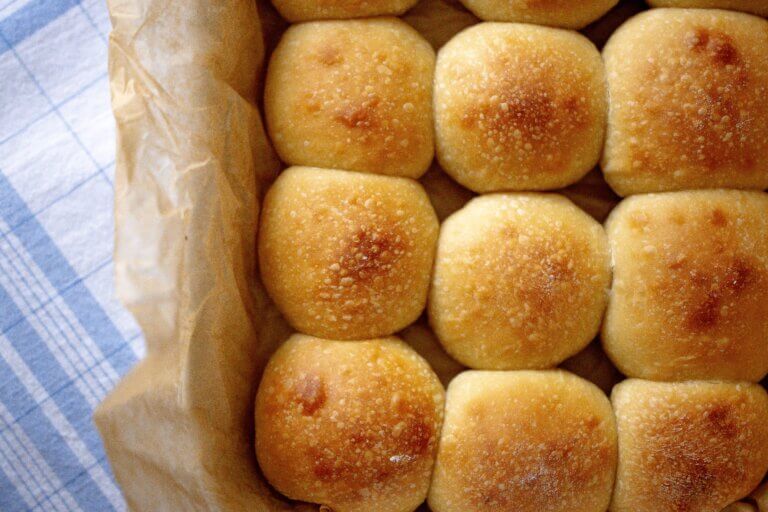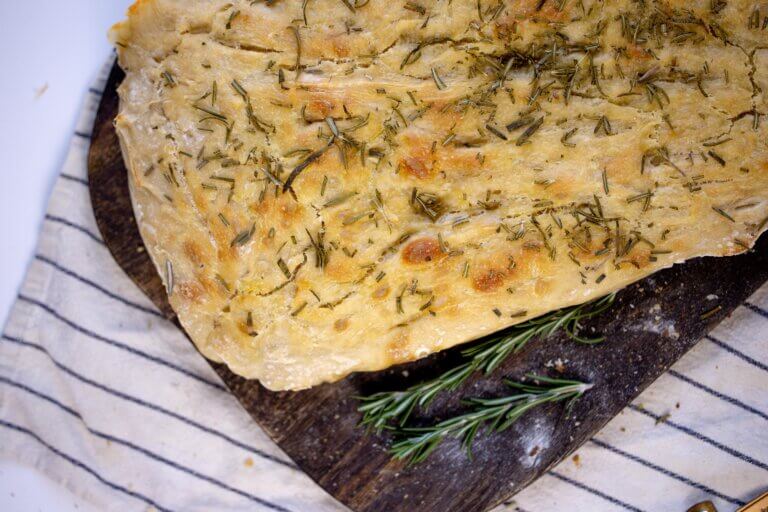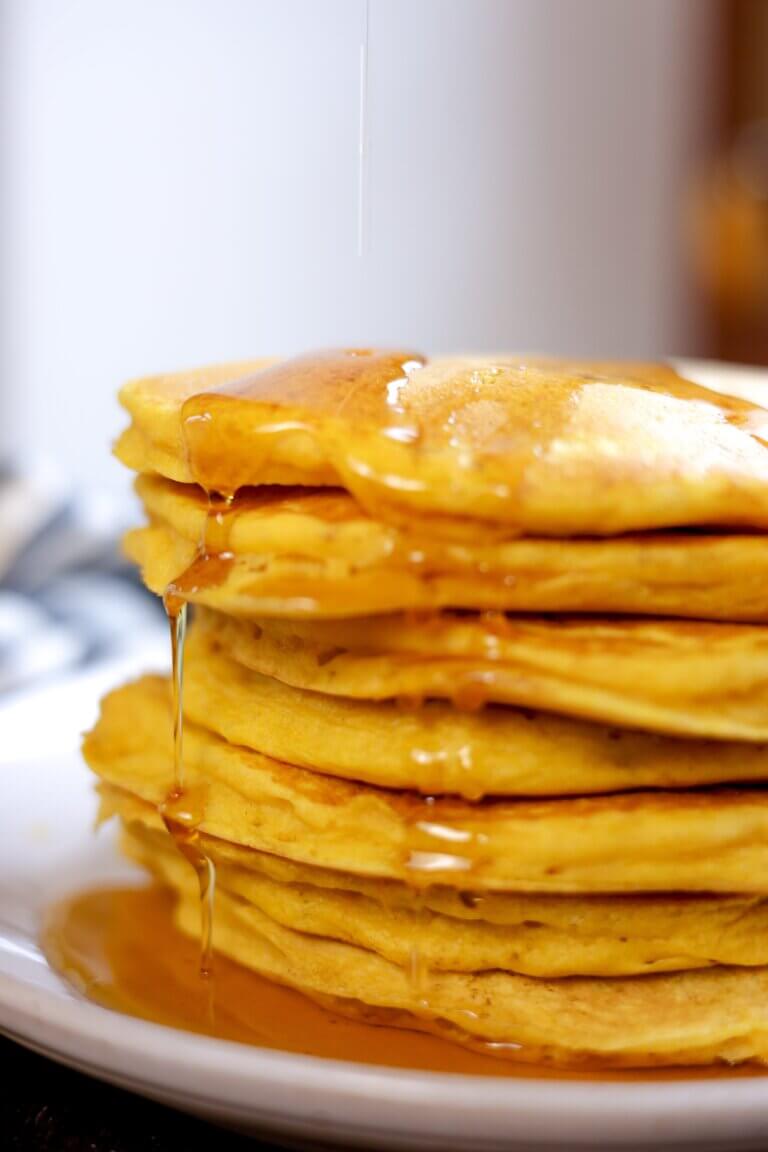Czech Sourdough Kolache Recipe
These sourdough kolaches are soft, slightly tangy pastries filled with rich poppyseed filling—a nostalgic Czech classic made with sourdough starter.

Kolaches are a beloved classic in the Czech Republic, and for me, they carry a big dose of childhood nostalgia. I remember eagerly waiting for these sweet pastries from our local bakery—or baked lovingly by my Czech babička. Wanting to bring those memories back, I created this sourdough kolaches recipe, a twist on the traditional dough made with sourdough starter for extra depth of flavor. The result is soft, slightly tangy kolaches filled with rich poppyseed filling that taste just like the ones I grew up with.
Whether you’re honoring your Czech roots or simply looking for a new sweet bake to share with family, these sourdough kolaches are both unique and approachable.

Why You’ll Love This Recipe
- Authentic Czech Tradition – These sourdough kolaches capture the nostalgic flavors of the Czech Republic, with a soft, slightly tangy dough and classic poppy seed filling. They’re just like the ones many of us grew up enjoying from local bakeries or a babička’s kitchen.
- Unique Sourdough Twist – By using sourdough starter instead of commercial yeast, this recipe adds depth of flavor and makes the kolaches easier to digest—without losing their tender, pillowy texture.
- Perfect for Celebrations or Everyday Baking – Whether you’re making them for a holiday spread or just because you’re craving something sweet and comforting, sourdough kolaches always feel special.
- A Taste of Czech Baking – If you love traditional recipes like Mazanec (a Czech Easter bread) or savory dishes like Velikonoční Nádivka, these kolaches are another way to bring authentic Czech flavors into your kitchen.
What You’ll Need
Tools

Instructions
- In a large bowl, whisk together flour and salt.
- In a smaller bowl, combine yolks, sugar, oil, and sourdough starter. Mix well.
- Add wet mixture to the dry ingredients, then blend in softened butter until you have a smooth, pliable dough (by hand or mixer with dough hook).
- Bulk ferment 5–8 hours, until doubled in size.
- Divide into ~24 equal pieces, roll into balls, and use a glass bottom to make an indent in each. Let rise 1–2 hours until puffy.
- Prepare filling: simmer milk and poppy seeds, stir in vanilla, jam, cloves, cinnamon, powdered sugar, and (optional) rum. Cool slightly.
- Fill each kolach with the poppyseed mixture and brush edges with egg wash.
- Bake at 350°F (180°C) for 25 minutes, until golden.
- Brush with melted butter (with a splash of rum if you like). Cool before serving.

FAQ

Tips
1. Strong Starter
Make sure your sourdough starter is active and bubbly before using. Feed it 6–8 hours ahead of time for the best rise. A sluggish starter will make the kolaches dense. (Here’s how to strengthen your starter – LINK TO FF)
2. Dough Texture
Spelt flour soaks up liquid differently than wheat flour. If the dough feels too sticky, sprinkle in 1–2 tablespoons of extra flour. You want it soft and slightly tacky, but still able to hold its shape.
3. Temperature Counts
The bulk rise (5–8 hours) will vary depending on how warm your kitchen is. Aim for 75–80°F (24–27°C). In cooler kitchens, use a proofing box or place the bowl near a warm oven to speed things up.
4. Poppy Seed Filling
For the best flavor, grind poppy seeds fresh. Pre-ground works too, but if the filling thickens too much as it cools, just stir in a splash of milk to loosen it up.
5. Jam Options
Plum jam is the classic choice, but apricot or cherry are also delicious. Try small batches to see what you like best.
6. Shiny Finish
Mix your egg wash with a little water or milk for a glossy finish. Brush lightly so it doesn’t pool around the filling.
7. Even Sizes
Weigh your dough balls (around 40–50g each) to make sure they bake evenly. Uneven sizes can lead to some kolaches being overdone while others are undercooked.
Storage

Czech Sourdough Kolache Recipe
Equipment
- Mixing bowls
- Wooden spoon & spatula
- Stand mixer
- Kitchen scale
- Parchment paper
- Pastry brush
Ingredients
Kolache
- 350 g active sourdough starter
- 190 g warm milk
- 60 g granulated sugar
- 1 tsp vanilla extract
- 1 tsp lemon zest
- 700 g spelt flour
- ½ tsp salt
- 2 egg yolks
- 30 g vegetable oil or melted coconut oil,
- 60 g cold butter
Poppy Seed Filling
- 300 g milk
- 200 g ground poppy seeds
- 1 tsp vanilla extract
- Plum jam or any other flavor jam, but plum is the tradition
- Ground cloves
- Ground cinnamon
- 2 tbs powdered sugar
- Rum optional
Instructions
- In a large bowl, whisk together flour and salt.
- In a smaller bowl, combine yolks, sugar, oil, and sourdough starter. Mix well.
- Add wet mixture to the dry ingredients, then blend in softened butter until you have a smooth, pliable dough (by hand or mixer with dough hook).
- Bulk ferment 5–8 hours, until doubled in size.
- Divide into ~24 equal pieces, roll into balls, and use a glass bottom to make an indent in each. Let rise 1–2 hours until puffy.
- Prepare filling: simmer milk and poppy seeds, stir in vanilla, jam, cloves, cinnamon, powdered sugar, and (optional) rum. Cool slightly.
- Fill each kolach with the poppyseed mixture and brush edges with egg wash.
- Bake at 350°F (180°C) for 25 minutes, until golden.
- Brush with melted butter (with a splash of rum if you like). Cool before serving.
Notes
Tips
- Strong Starter: Make sure your sourdough starter is active and bubbly before using. Feed it 6–8 hours ahead of time for the best rise. A sluggish starter will make the kolaches dense. (Here’s how to strengthen your starter – LINK TO FF)
- Dough Texture: Spelt flour soaks up liquid differently than wheat flour. If the dough feels too sticky, sprinkle in 1–2 tablespoons of extra flour. You want it soft and slightly tacky, but still able to hold its shape.
- Temperature Counts: The bulk rise (5–8 hours) will vary depending on how warm your kitchen is. Aim for 75–80°F (24–27°C). In cooler kitchens, use a proofing box or place the bowl near a warm oven to speed things up.
- Poppy Seed Filling: For the best flavor, grind poppy seeds fresh. Pre-ground works too, but if the filling thickens too much as it cools, just stir in a splash of milk to loosen it up.
- Jam Options: Plum jam is the classic choice, but apricot or cherry are also delicious. Try small batches to see what you like best.
- Shiny Finish: Mix your egg wash with a little water or milk for a glossy finish. Brush lightly so it doesn’t pool around the filling.
- Even Sizes: Weigh your dough balls (around 40–50g each) to make sure they bake evenly. Uneven sizes can lead to some kolaches being overdone while others are undercooked.
Storage
Room Temperature (Up to 2 Days)
Once your kolaches have cooled, keep them in an airtight container at room temperature for up to 2 days. Store them in a cool, dry spot away from sunlight to help them stay fresh. The sourdough may firm up a little after the first day, but the flavor will still be wonderful.Refrigerator (Up to 5 Days)
For longer storage, place the kolaches in an airtight container in the fridge. They’ll keep for up to 5 days, and this helps protect the poppy seed filling. The dough may become a bit denser, so for best results, separate layers with parchment paper to prevent sticking.Freezer (Up to 3 Months)
If you’d like to keep them even longer, wrap each kolach individually in plastic wrap, then place them in a freezer-safe bag or container. They’ll stay fresh in the freezer for up to 3 months, and this method keeps both the dough and filling in great condition.Reheating
- From Room Temperature or Refrigerator: Warm kolaches in a 300°F (150°C) oven for 5–7 minutes until the dough softens and the filling is heated through. A quick microwave (15–20 seconds) works too, though it may soften the texture.
- From Frozen: Thaw at room temperature for 1–2 hours, or overnight in the fridge. Reheat in a 300°F (150°C) oven for 7–10 minutes to bring back that fresh-baked feel. Avoid microwaving straight from frozen, as it can make the dough soggy.
This article may contain affiliate links, which means I make a small commission at no extra cost to you. As an Amazon Associate, I earn from qualifying purchases at no extra cost to you. You can read the full disclosure policy.

